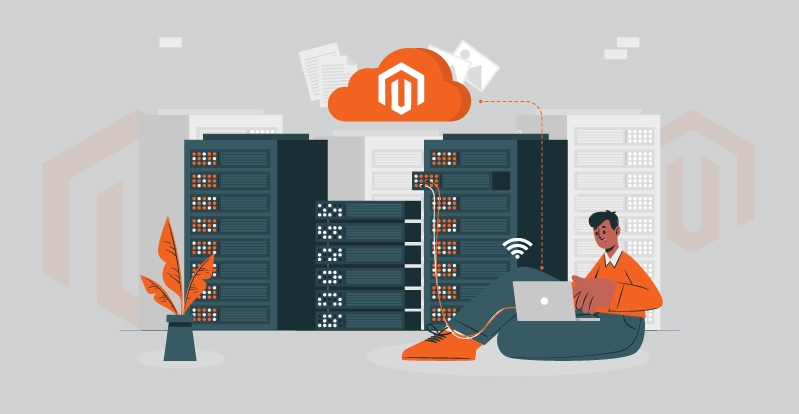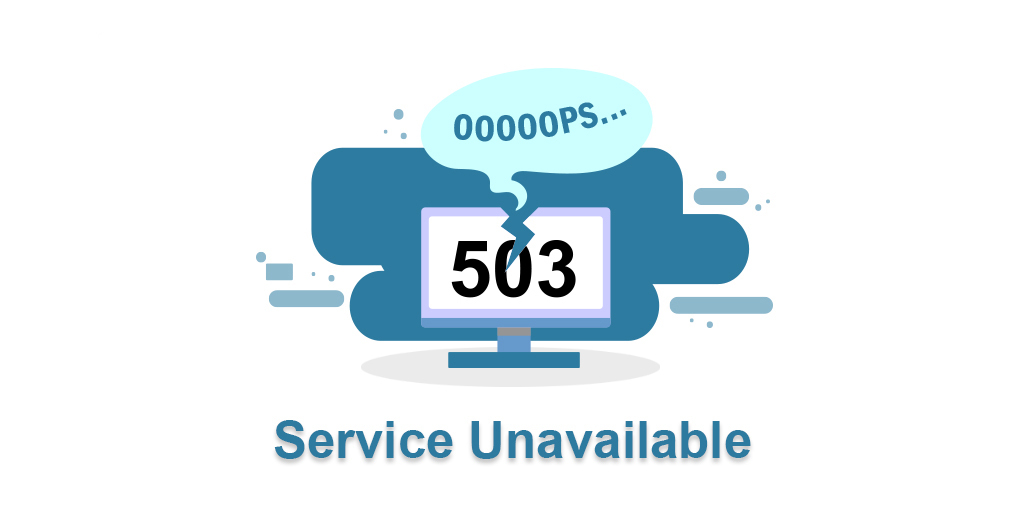Magento is a popular e-commerce platform that offers numerous advantages for online businesses. Here are some key reasons why Magento is a preferred choice for e-commerce:
Robust and Feature-Rich: Magento is a highly robust and feature-rich platform designed specifically for e-commerce. It provides a comprehensive set of tools and features to build and manage online stores effectively. From product catalog management, order processing, and payment integrations to marketing and SEO capabilities, Magento offers a wide range of features to support the diverse needs of e-commerce businesses.
Scalability and Flexibility: Magento is highly scalable and can accommodate businesses of all sizes, from small startups to large enterprises. It offers the flexibility to customize and tailor your online store according to your specific requirements. With its modular architecture, extensive extension marketplace, and API integrations, Magento allows for seamless integration with third-party systems and the ability to adapt and grow your online store as your business expands.
Multi-Store Capabilities: Magento supports the creation and management of multiple online stores from a single backend interface. This is particularly advantageous for businesses operating in multiple markets, targeting different customer segments, or managing multiple brands. With Magento, you can easily manage multiple stores, share resources, and implement localized strategies, all within a unified platform.
SEO-Friendly: Search engine optimization (SEO) is essential for online visibility and attracting organic traffic. Magento offers built-in SEO features and capabilities to optimize your online store for search engines. It provides tools for managing meta tags, URLs, sitemaps, and other SEO-related elements. Additionally, Magento's responsive design and mobile optimization contribute to better SEO performance as search engines prioritize mobile-friendly websites.
Community and Support: Magento has a vibrant and active community of developers, designers, and users worldwide. The community provides access to a wealth of resources, extensions, and knowledge-sharing platforms. Additionally, Magento offers robust official support and documentation, ensuring that users have access to assistance and guidance when needed.
Enterprise-Grade Security: Security is paramount for e-commerce websites. Magento incorporates robust security measures to protect sensitive customer data and ensure secure transactions. It offers features such as secure payment gateways, SSL encryption, PCI compliance, and strong password management.

Key Factors in Choosing a Magento Hosting Provider
When choosing a Magento hosting provider, several key factors should be considered to ensure optimal performance and reliability. Here are the key factors to consider:
Performance and Speed: Magento is a resource-intensive platform, so it's crucial to choose a hosting provider that offers high-performance servers and optimized configurations. Look for providers that use SSD storage, offer caching mechanisms, and have sufficient server resources to handle the demands of a Magento store. Fast loading times are essential for a seamless user experience and better search engine rankings.
Uptime and Reliability: Downtime can significantly impact your e-commerce business, leading to lost sales and customer dissatisfaction. Select a hosting provider with a track record of high uptime and reliable infrastructure. Look for providers that offer a service level agreement (SLA) guaranteeing a minimum uptime percentage. Additionally, consider providers with redundant systems, backup solutions, and proactive monitoring to minimize the risk of downtime.
Scalability and Resource Allocation: As your online store grows, you'll need a hosting provider that can accommodate increasing traffic and resource demands. Ensure the hosting provider offers scalable hosting plans and the ability to allocate resources as needed. This ensures that your Magento store can handle surges in traffic and scales seamlessly as your business expands.
Security Features: Security is of utmost importance for e-commerce websites. Look for hosting providers that offer robust security measures, including firewalls, malware scanning, DDoS protection, SSL certificates, and regular backups. A secure hosting environment protects your customers' data and ensures a safe shopping experience.
Support and Expertise: Magento can be complex, so having reliable support from your hosting provider is essential. Ensure the provider offers specialized Magento support, including technical expertise, troubleshooting assistance, and guidance on optimizing your Magento store. Responsive customer support can help resolve issues quickly and minimize any disruptions to your business.
Compatibility with Magento: Verify that the hosting provider is compatible with the specific requirements of Magento. Ensure they meet the necessary technical requirements and have experience hosting Magento stores. Compatibility ensures optimal performance, stability, and compatibility with Magento extensions and features.
Pricing and Cost: While pricing shouldn't be the sole determining factor, it's important to consider the hosting provider's pricing structure and whether it aligns with your budget. Compare the features and services offered by different providers to find the best value for your specific needs.

Review of the Best Hosting for Magento
When it comes to choosing the best hosting for Magento, several factors come into play. Here is a review of some popular hosting providers for Magento, taking into account factors such as speed, reliability, security, scalability, customer service, and cost:
Stablepoint
Stablepoint shines as an exceptional hosting provider for Magento, offering a tailored and optimized environment for this powerful e-commerce platform. With a strong focus on speed, stability, and security, Stablepoint ensures that Magento-powered websites run seamlessly, providing customers with an exceptional shopping experience.
Their robust infrastructure and expert technical support guarantee minimal downtime, allowing online stores to operate efficiently without disruptions. Whether it's a small boutique or a large enterprise, Stablepoint's scalable hosting solutions accommodate the growth of Magento-based businesses, ensuring a smooth transition as they expand their operations.
Verpex
Verpex stands out as an exceptional hosting provider for Magento, offering a tailor-made environment that caters to the specific needs of e-commerce businesses. With a strong emphasis on performance and reliability, Verpex ensures that Magento websites load quickly and operate smoothly, providing an exceptional shopping experience for customers.
Their robust infrastructure and cutting-edge technology guarantee optimal uptime, minimizing any potential disruptions to online stores. Moreover, Verpex's advanced security measures protect Magento stores and customer data, instilling trust and confidence in both merchants and shoppers.
Dedicated Now
Dedicated Now excels as a top-tier hosting provider for Magento, offering a unique and robust hosting solution tailored explicitly to meet the demanding requirements of e-commerce businesses. With a strong focus on providing dedicated server resources, Dedicated Now ensures optimal performance, speed, and scalability for Magento websites.
Mocha Host
Mocha Host emerges as an outstanding hosting provider for Magento, offering a dynamic and feature-rich hosting environment that caters specifically to the needs of e-commerce ventures. With a strong emphasis on performance optimization, Mocha Host ensures that Magento websites deliver lightning-fast load times and a seamless shopping experience for customers.
Their cutting-edge technology and robust infrastructure guarantee exceptional uptime, providing online stores with the stability they need to thrive in the competitive e-commerce landscape.

How to Migrate to a New Magento Hosting Provider
Migrating your Magento store to a new hosting provider requires careful planning and execution to ensure a smooth transition. Here's a step-by-step guide to help you migrate your Magento store to a new hosting provider:
Choose the new hosting provider: Research and select a new hosting provider that meets your requirements in terms of performance, reliability, security, support, and scalability. Ensure they offer Magento-specific hosting services and have experience with Magento migrations.
Set up the new hosting environment: Sign up for the new hosting plan and set up the hosting environment provided by the new hosting provider. This typically involves creating an account, selecting a hosting package, and configuring your domain settings.
Back up your Magento store: Before initiating the migration, create a backup of your Magento store, including all website files, databases, and any customizations or extensions you have implemented. This ensures you have a fallback option in case of any issues during the migration process.
Create a staging environment: Set up a staging environment on the new hosting provider where you can safely migrate and test your Magento store before making it live. This allows you to ensure everything works correctly before impacting your live website.
Transfer files and databases: Copy your Magento store's files from the existing hosting provider to the new hosting provider. This can be done via FTP or SSH/SFTP access. Export your Magento database from the existing hosting provider and import it into the new hosting provider's database server.
Configure Magento settings: Update the Magento configuration files to reflect the new database credentials, server settings, and any other relevant configurations required by the new hosting provider. This ensures your Magento store can connect to the new hosting environment.
Test the migrated store: Once the files and databases are transferred, access your Magento store in the staging environment on the new hosting provider and thoroughly test its functionality. Check for any issues, broken links, missing files, or configuration problems.
DNS update and final migration: Once you are confident that the migrated store on the staging environment is working correctly, update your DNS settings to point to the new hosting provider. This directs your domain to the new hosting provider, making your Magento store live on the new hosting environment.
Perform post-migration checks: After the DNS propagation period (which can take up to 24-48 hours), perform a series of post-migration checks to ensure everything is functioning as expected. Test various functionalities, check for any broken links, and monitor the website's performance.
Cancel old hosting account: Once you have confirmed the successful migration and verified that your Magento store is working smoothly on the new hosting provider, you can cancel your old hosting account.
It's important to note that migrating a Magento store involves technical complexities, so it may be beneficial to consult with Magento experts or seek assistance from your new hosting provider's support team. They can provide guidance and ensure a seamless transition during the migration process.

Conclusion
In conclusion, choosing the best hosting for Magento in 2023 is crucial for the success of your e-commerce store. With the right hosting provider, you can ensure optimal performance, reliability, security, scalability, and support for your Magento store.
Remember to consider factors such as performance, reliability, security, scalability, customer service, and cost when selecting the best hosting provider for your Magento store. Assess your specific business needs and objectives to find a hosting provider that aligns with your requirements.
As technology evolves, it's essential to stay updated on the latest trends and innovations in Magento hosting. Continuously evaluate your hosting provider's performance, consider new options as they emerge, and adapt your hosting strategy to meet the changing demands of your e-commerce business.
What makes Magento hosting different from regular hosting?
Magento hosting is specifically optimized for the Magento e-commerce platform. It offers server configurations, performance optimizations, and security measures tailored to meet the unique requirements of Magento. Regular hosting may not provide the same level of performance and compatibility for running a Magento store effectively.
Why is speed important for Magento hosting?
Speed is crucial for Magento hosting as it directly impacts the user experience and conversion rates. Fast loading times enhance user satisfaction, reduce bounce rates, and improve search engine rankings. Magento hosting providers optimize server configurations, utilize caching mechanisms, and offer high-performance infrastructure to ensure fast page loading times.
What security features should I look for in a Magento hosting provider?
Security is vital for e-commerce websites. When choosing a Magento hosting provider, look for features such as robust firewalls, malware scanning, SSL certificates, and secure payment gateways. Regular backups and disaster recovery plans are also important to safeguard your store's data.
How scalable should my Magento hosting be?
Scalability is important to accommodate the growth of your e-commerce store. Ensure that your Magento hosting provider offers scalable hosting plans or the ability to upgrade resources as your traffic and business expand. This flexibility allows your store to handle increased demands without compromising performance.
What level of customer support should I expect from a Magento hosting provider?
A reliable Magento hosting provider should offer excellent customer support, preferably with expertise in Magento-specific issues. Look for providers that offer 24/7 support, quick response times, and knowledgeable staff who can assist with Magento-related queries and troubleshooting.
Can I migrate my existing Magento store to a new hosting provider?
Yes, it is possible to migrate your Magento store to a new hosting provider. However, it requires careful planning and execution. It is recommended to create a backup of your store, set up a staging environment, transfer files and databases, test the migrated store, update DNS settings, and perform post-migration checks. Consulting with Magento experts or seeking assistance from the new hosting provider's support team can ensure a smooth migration process.

Nadejda Milanova
An experienced Content creator in the field of Search Engine Optimization (SEO) and WordPress. A true proffesional with a Master's degree focused on journalism.
Read more by Nadejda Milanova





